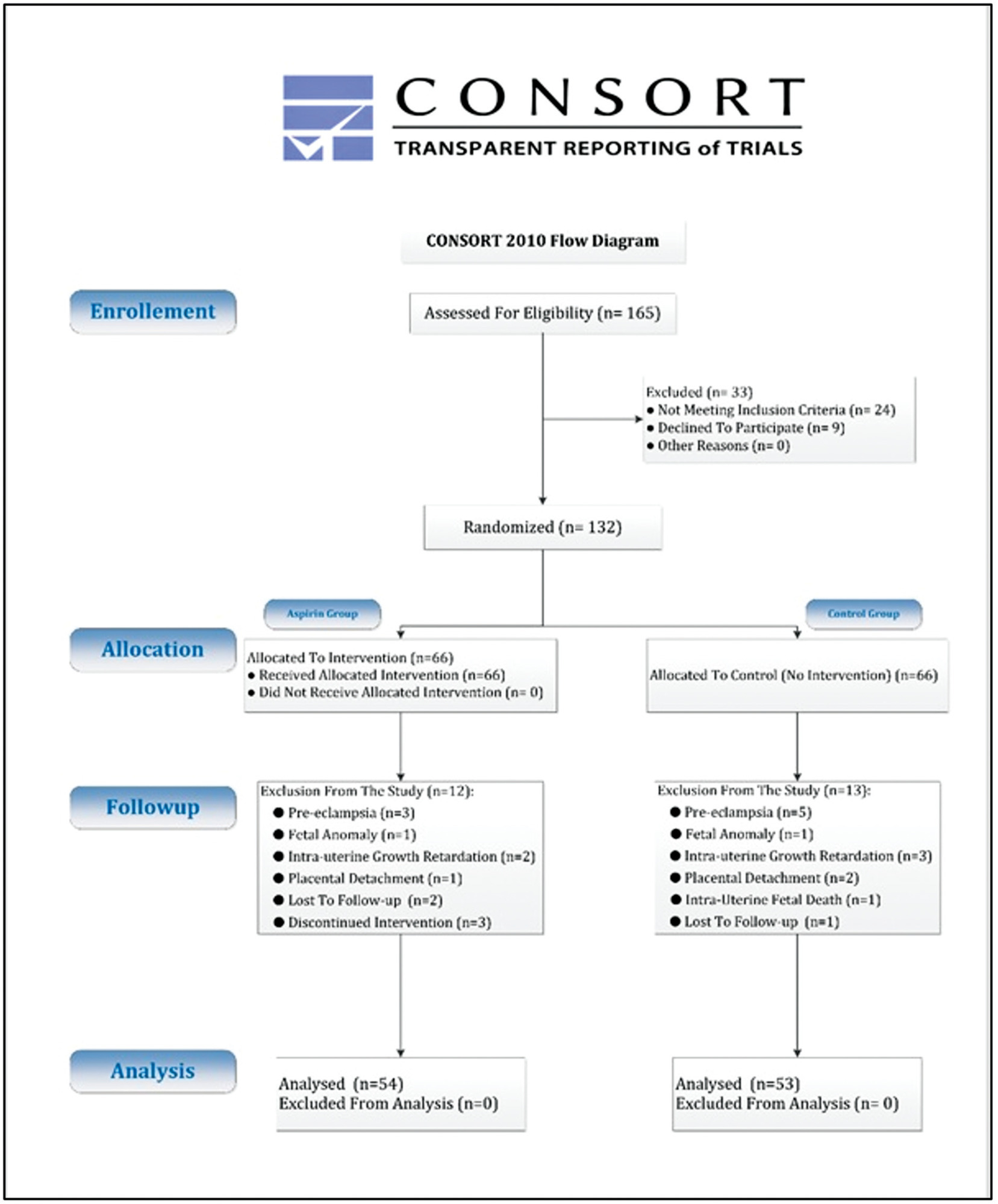Revista Brasileira de Ginecologia e Obstetrícia. 12-05-2023;45(11):646-653

Currently, uteroplacental vascular disorders are considered one of the main mechanisms of spontaneous preterm delivery (PTD). Low-dose aspirin is used to prevent pre-eclampsia, which has a similar mechanism; hence, the present study aimed to investigate the effect of low-dose aspirin on the prevention of PTD in women with a history of spontaneous PTD.
The present pilot randomized clinical trial was conducted on 54 pregnant women in the aspirin group (taking 80 mg daily until the 36th week and classic treatment) and 53 patients in the control group (only receiving classic treatment).
Forty-three patients (40%) presented before 37 weeks due to symptoms of PTL. Preterm delivery (< 37 weeks) occurred in 28 patients (26%), and there was no significant difference between the aspirin and control groups (10 patients [19%] and 18 patients [34%], respectively; p = 0.069). The time of preterm delivery was early (< 34 weeks) in 6 patients (21%), and its cause was spontaneous labor in 23 patients (82%) which was not significantly different between the two groups (p > 0.05). Out of 40 patients with spontaneous labor, 25 patients (63%) had a PTD, which was significantly lower in the aspirin group than in the control group (9 patients [45%] versus 16 patients [80%], respectively; p = 0.022).
The findings of the present study demonstrated that despite the reduction in the incidence of PTD using low-dose aspirin, the reduction rate was not statistically significant. On the other hand, in patients with spontaneous labor prone to PTD, aspirin was effective in reducing the incidence of PTD.
Search
Search in:


Comments